Thousands of Ukrainian refugees have left the comfortable seaside hotels they had been put up at to travel into an uncertain future. For the time being what this future looks like is: standard caravans, lined up like soldiers, or bunk beds, 20 inside a single tent, or a crowd of mothers with children in a panic, not knowing whether there will be enough sandwiches to go round.
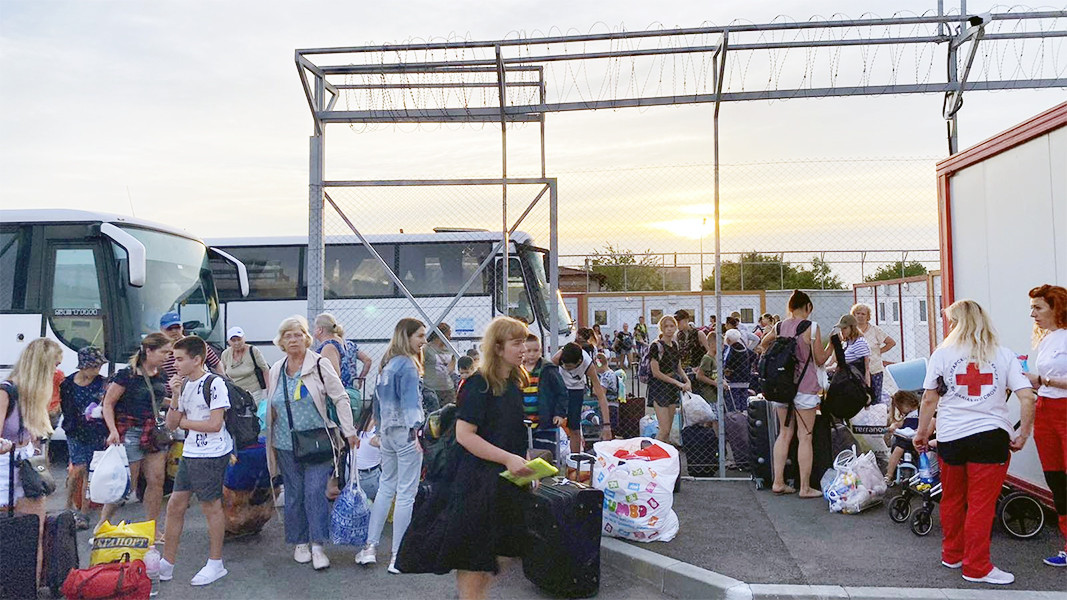
“Where am I going? What is going to happen to me? Am I going to stay?” The Ukrainians fleeing the horrors of war, who had found brief haven in seaside hotels, are now asking these same questions. On Monday the government announced it was halting the plan for their relocation, and would send them in two directions – to the temporary migrant centres at Elhovo and Sarafovo – and from there to state-run facilities all over the country.
Though they have only been put up temporarily in these field camps, the Ukrainian refugees say there is not enough food and water to go round, no hot water and soap, no basic sanitation. While the high wire fencing is an additional stress factor.
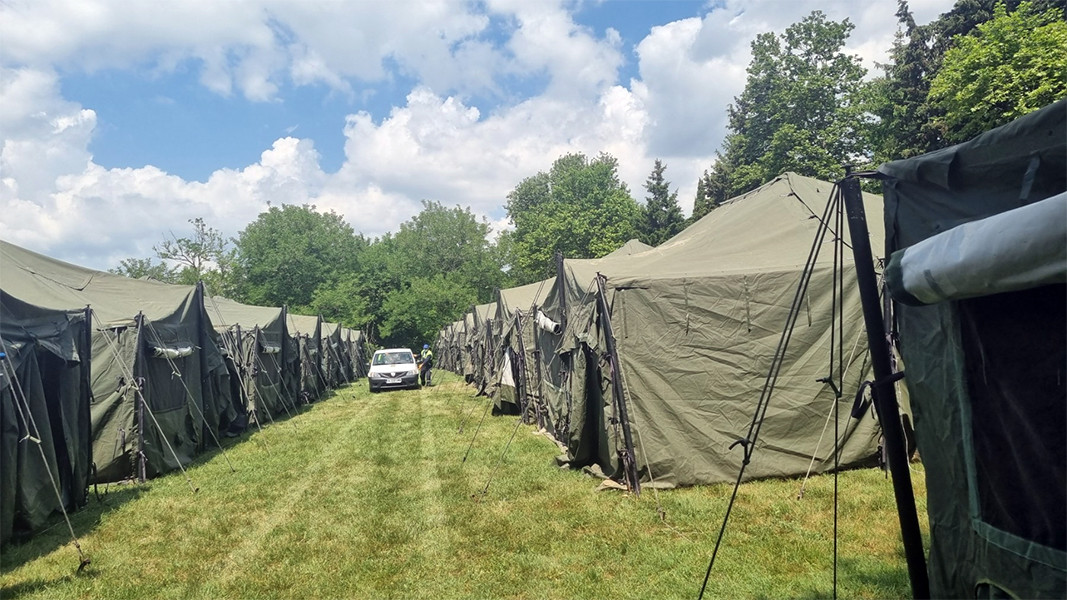
And though some of them have already left for new facilities where they would be accommodated, they did not know to the last where the bus was taking them.
“Things are just not organized,” said one of the Ukrainian women, who left the migrant centre at Elhovo yesterday. “It is not well organized, with all of these people having to wait in the hot sun for hours. What did they draw the list up for? They did it twice – a list of children, disabled people and pensioners, then they re-did it ten times.”
The first group of people left Elhovo yesterday – mothers with children, people with reduced mobility and sick people, to be put up at a children’s camp near Yastrebino from the communist era. But how did the 563 people left at Elhovo spend the night there?

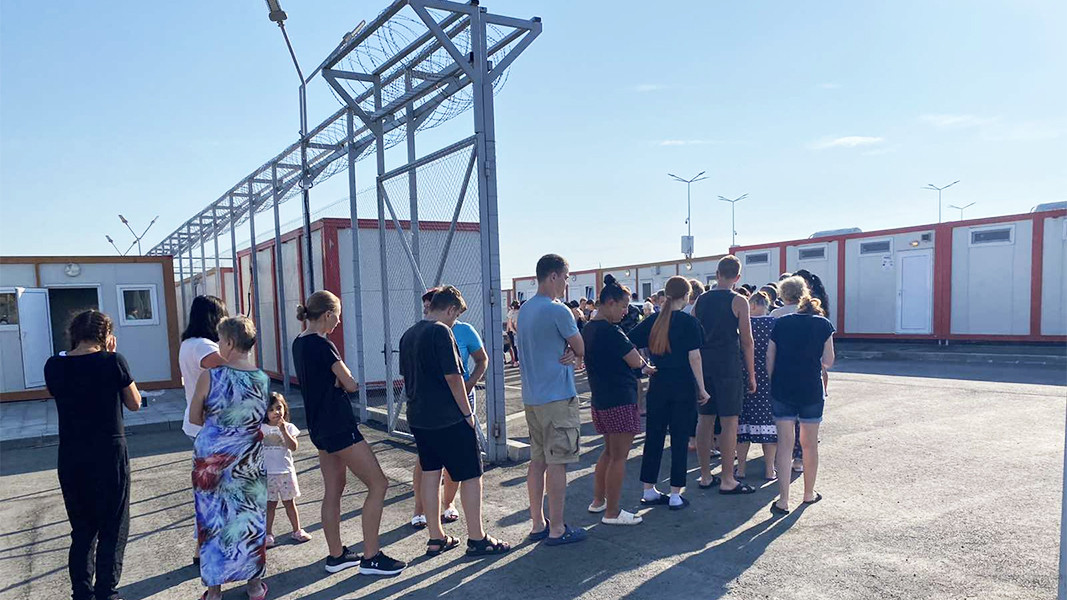
Yulia, who comes from Mykolaiv with her three children, has already been put up at a facility belonging to Maritsa Iztok Mines. She admits she was terrified by the conditions in Elhovo: “It is a terrible feeling there – like a camp with wire fences.” She says she is thankful for the help and likes her new home, where, according to initial information she will be able to stay until September. Yulia is hoping to find a job soon.
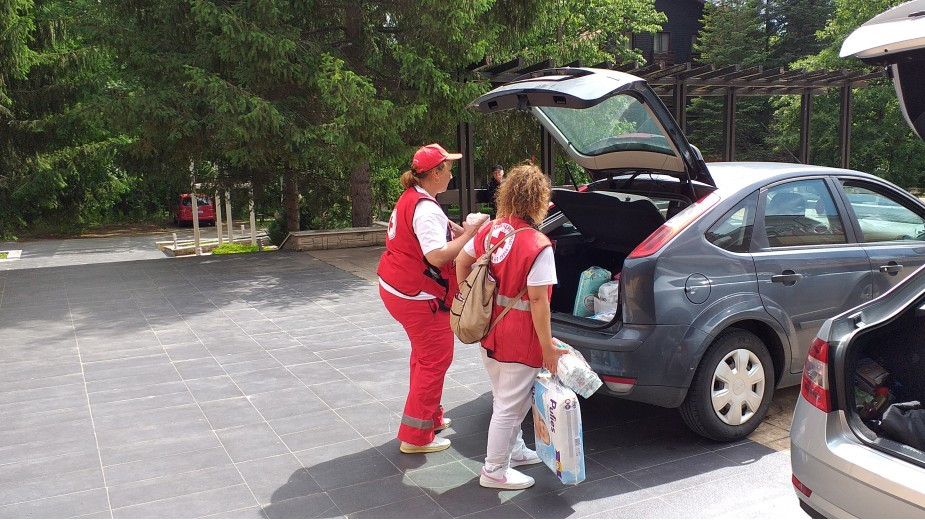
“As always we have brought everything we are doing to the point of hysterics and are on the point of ruining it all,” says culturologist Ivaylo Ditchev, as he comments on the tensions generated by the scathing words in the video address by Deputy Prime Minister Kalina Konstantinova and the scrapping of the plan for the refugees’ relocation.
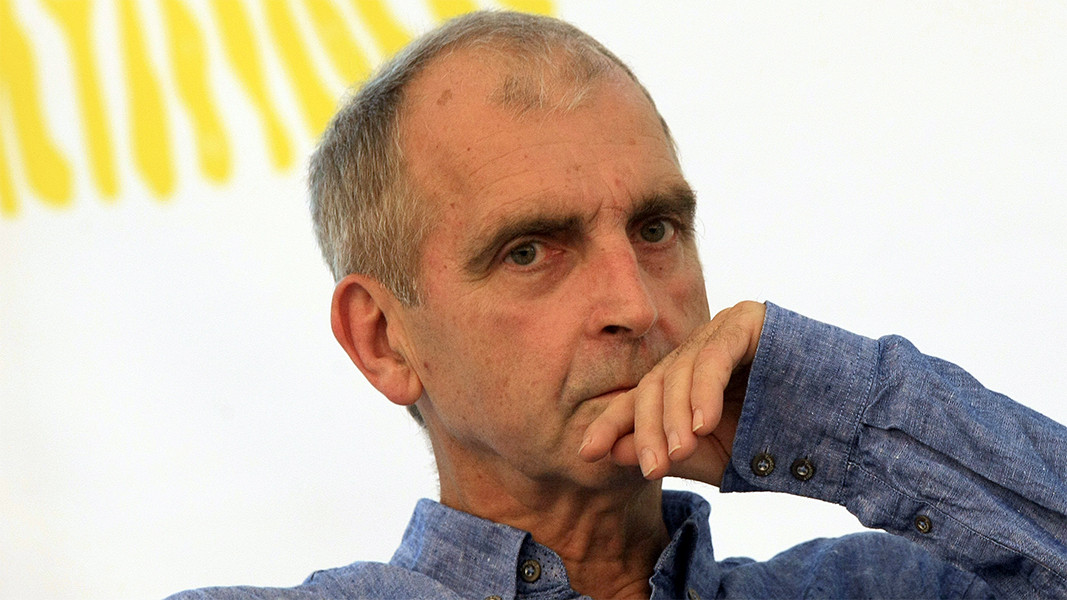
“Our government offered more than it should have when it put them up at these luxury hotels,” Ivaylo Ditchev says. “It was clear a long time ago they would have to leave, and of course, there was disappointment. If we want foreigners to be integrated in the labour market, they need to be living in big centres where there are jobs available. Many of the Ukrainian women are in an active age, their children need to socialize as well. We made the same mistake that we did with the refugees from Syria, whom we sent to the border so as to get rid of them more quickly. We must be prepared – more and more migrants are going to be entering our labour market. They are people we need. But what we don’t have yet is a policy for the integration of refugees in the labour market.”
Interviews by Horizont channel, Radio Kurdzhali and Radio Stara Zagora, BNR
Compiled by Diana Tsankova
Photos: BNR, BGNES
From 26 to 28 September, the historical Bulgarian capital Veliko Tarnovo will host the first-ever national festival of organic produce in the Marno Pole Park. The National Bio Fest 2025 is a large-scale exhibition of certified Bulgarian organic..
A major project to produce a feature film about the life and career of legendary Bulgarian footballer Hristo Stoichkov was presented on Wednesday, state news agency BTA reported. The premiere is scheduled for late 2027. The creators said they aim..
The dance group at the Bulgarian Sunday School "Dr. Petar Beron" in Sydney, Australia, took part in the twenty-seventh edition of the Children's Multicultural Festival, BTA reported. The young dancers presented a composition on stage..
"Folklore is a need for humans and this need will not disappear just like that, " says Assoc. Prof. Dr. Natalia Rashkova -..
October 17, 2025 will go down in history as the date on which the Minister of Culture of Hungary presented the document with which the..
The center of Bulgaria's town of Asenovgrad is today turning into a colorful scene of flavors, aromas and traditions, in which the spirit of the Red Wall..

+359 2 9336 661
